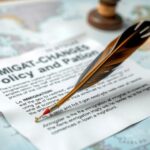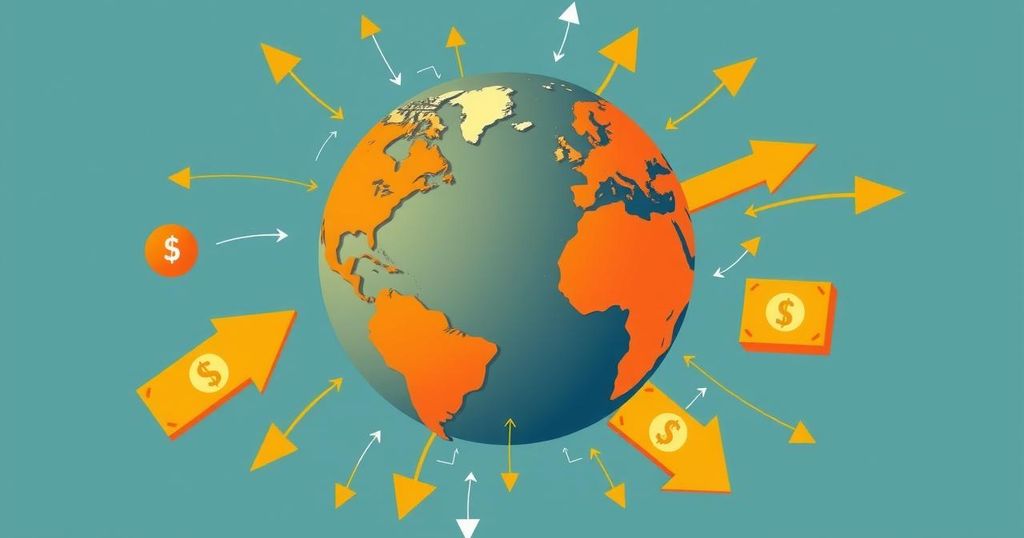Facing Deportation: A Venezuelan’s Journey Through U.S. Immigration Challenges
Eduardo Arturo Escobar Amaya recounts his emotional journey from Venezuela to the U.S., emphasizing the complexities of his immigration status under the Humanitarian Parole program. With imminent deportation due to evolving policies, he faces a difficult return home. Despite support from his community, the uncertainty of his situation highlights broad issues within the U.S. immigration system, impacting many immigrants similarly.
Eduardo Arturo Escobar Amaya shares his poignant journey from Venezuela to Minnesota and describes the complexities surrounding his immigration status. After moving to the U.S. under the Humanitarian Parole program, which allowed Venezuelan citizens a path to temporary residency, he now faces imminent deportation due to changing immigration policies. Navigating the haze of these legal requirements, Escobar discusses the emotional and financial toll that uncertainty has taken on his life and the lives of many in similar situations.
He originally arrived in the U.S. in May 2023, after his friends sponsored him under the Humanitarian Parole program implemented by President Biden. This initiative aimed to provide a legal pathway for Venezuelans seeking refuge from the dire conditions in their home country. Escobar’s employment attempted to secure a work visa, yet the complicated, lottery-based process rendered this aspiration unfeasible.
In September, he applied and obtained Temporary Protected Status (TPS), which offers a glimmer of hope for some immigrants. However, as the political landscape shifted, fears arose over the continuity of TPS. Following the election, Escobar learned he would need to depart by April 7, facing the bleak prospect of deportation, which would create longstanding repercussions on his record.
Recent governmental measures have rendered Humanitarian Parole illegal, with potential deportations for individuals like Escobar now authorized by the current administration. With limited options on the horizon, he plans to return to Venezuela, dreading the uncertainty and potential for prolonged detention upon repatriation.
Despite challenges, Escobar remains appreciative of the support he has received from friends and his community in Minnesota. However, the painful reality remains: if he cannot remain legally, he understands it might be best to leave rather than risk becoming a liability to his family or facing additional hardships.
In conclusion, Eduardo Arturo Escobar Amaya’s narrative underscores the precarious and often bewildering landscape of immigration in the United States, particularly for individuals fleeing dire circumstances. His reflections not only highlight the emotional and financial strains associated with the immigration process but also demonstrate the formidable impact of changing policies on vulnerable populations. Ultimately, Escobar’s decision to depart illustrates a desperate response to an increasingly tenuous situation in pursuit of stability and personal safety.
Original Source: racketmn.com








Post Comment